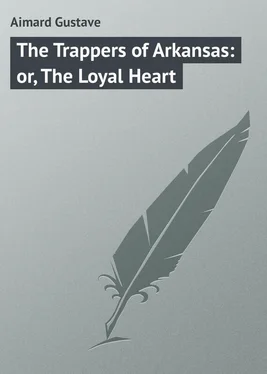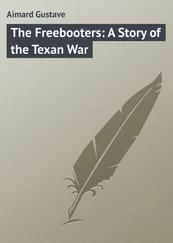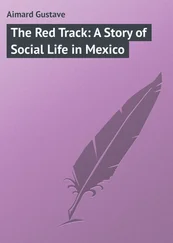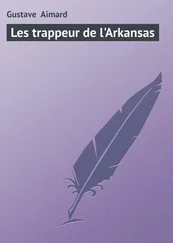Gustave Aimard - The Trappers of Arkansas - or, The Loyal Heart
Здесь есть возможность читать онлайн «Gustave Aimard - The Trappers of Arkansas - or, The Loyal Heart» — ознакомительный отрывок электронной книги совершенно бесплатно, а после прочтения отрывка купить полную версию. В некоторых случаях можно слушать аудио, скачать через торрент в формате fb2 и присутствует краткое содержание. Жанр: foreign_prose, foreign_adventure, на английском языке. Описание произведения, (предисловие) а так же отзывы посетителей доступны на портале библиотеки ЛибКат.
- Название:The Trappers of Arkansas: or, The Loyal Heart
- Автор:
- Жанр:
- Год:неизвестен
- ISBN:нет данных
- Рейтинг книги:3 / 5. Голосов: 1
-
Избранное:Добавить в избранное
- Отзывы:
-
Ваша оценка:
- 60
- 1
- 2
- 3
- 4
- 5
The Trappers of Arkansas: or, The Loyal Heart: краткое содержание, описание и аннотация
Предлагаем к чтению аннотацию, описание, краткое содержание или предисловие (зависит от того, что написал сам автор книги «The Trappers of Arkansas: or, The Loyal Heart»). Если вы не нашли необходимую информацию о книге — напишите в комментариях, мы постараемся отыскать её.
The Trappers of Arkansas: or, The Loyal Heart — читать онлайн ознакомительный отрывок
Ниже представлен текст книги, разбитый по страницам. Система сохранения места последней прочитанной страницы, позволяет с удобством читать онлайн бесплатно книгу «The Trappers of Arkansas: or, The Loyal Heart», без необходимости каждый раз заново искать на чём Вы остановились. Поставьте закладку, и сможете в любой момент перейти на страницу, на которой закончили чтение.
Интервал:
Закладка:
"I shall not pray to you," the boy replied, "people do not intreat an executioner!"
Don Ramón started; he walked about in feverish agitation; but soon recovering himself, he continued,
"In this pouch are provisions for two days. I leave you this rifle, which in my hands never missed its mark; I give you also these pistols, this machete, and this knife, this hatchet, and powder and balls in these buffalo horns. You will find with the provisions a steel and everything necessary for kindling a fire. I add to these things a Bible, belonging to your mother. You are dead to society, into which you can never return; the desert is before you; it belongs to you; for me, I have no longer a son, adieu! The Lord be merciful to you, all is ended between us on earth; you are left alone, and without a family; it depends upon yourself, then, to commence a second existence, and to provide for your own wants. Providence never abandons those who place their confidence in it; henceforward, it alone will watch over you."
After having pronounced these words, Don Ramón, his countenance still impassible, replaced the bridle on his horse, restored his son to liberty by cutting the cords which bound him, and then getting into his saddle, he set off at his horse best speed.
Rafaël rose upon his knees, bent his head forward, listened with anxiety to the retreating gallop of the horse on the sand, followed with his eyes, as long as he was able, the fatal profile which was thrown in black relief by the moonbeams; and when the horseman was at length confounded with the darkness, the boy placed his hand upon his breast, and an expression of despair impossible to be described convulsed his features.
"My mother! my mother!" he cried.
He fell lifeless upon the sand. He had fainted.
After a long gallop, Don Ramón, insensibly and as if in spite of himself, slackened the speed of his horse, lending a keen ear to the vague noises of the desert, listening with anxiety, without rendering an account to himself why he did so, but expecting, perhaps, an appeal from his unfortunate son to return to him. Twice even his hand mechanically pulled the bridle as if he obeyed a secret voice which commanded him to retrace his steps; but the fierce pride of his race was still the stronger, and he continued his course homewards.
The sun was rising at the moment Don Ramón arrived at the hacienda.
Two persons were standing side by side at the gate, waiting his return.
The one was Doña Jesuita, the other the major-domo.
At sight of his wife, pale, mute, and motionless before him, like the statue of desolation, the hacendero felt an unutterable sadness weigh upon his heart; he wished to pass, but Doña Jesuita, making two steps towards him and seizing the bridle of his horse, said with agonized emotion, —
"Don Ramón, what have you done with my son?"
The hacendero made no reply; on beholding the grief of his wife, remorse shot a pang into his heart, and he asked himself mentally if he had really the right to act as he had done.
Doña Jesuita waited in vain for an answer. Don Ramón looked earnestly at his wife; he was terrified at perceiving the indelible furrows which grief had imprinted upon that countenance, so calm, so placid, but a few hours before.
The noble woman was livid; her contracted features had an inexpressible rigidity; her eyes, burnt with fever, were red and dry, two black and deep lines rendered them hollow and haggard; a large stain marbled each of her cheeks, the trace of tears the source of which was dried up; she could weep no more, her voice was hoarse and broken, and her oppressed breast heaved painfully to allow the escape of a panting respiration.
After having waited some minutes for a reply to her question, "Don Ramón," she repeated, "what have you done with my son?"
The hacendero turned away his head with something like confusion.
"Oh! you have killed him!" she said, with a piercing shriek.
"No;" Don Ramón replied, terrified at her grief, and for the first time in his life forced to acknowledge the power of the mother who demands an account of her child.
"What have you done with him?" she screamed persistently.
"Presently, when you are more calm, you shall know all."
"I am calm," she replied, "why should you feign a pity you do not feel? My son is dead, and it is you who have killed him!"
Don Ramón alighted from his horse.
"Jesuita," he said to his wife, taking her hands and looking at her with tenderness, "I swear to you by all that is most sacred in the world, that your son exists; I have not touched a hair of his head."
The poor mother remained pensive for a few seconds.
"I believe you," she said; then after a pause she added, "What is become of him?"
"Well!" he replied, with some hesitation, "since you insist upon knowing all, learn that I have abandoned your son in the desert, but have left him the means to provide for his safety and his wants."
Doña Jesuita started, a nervous shudder crept through the whole of her frame.
"You have been very clement," she said in a cutting tone, and with bitter irony; "you have been very clement towards a boy of sixteen, Don Ramón; you felt a repugnance to bathe your hands in his blood, and you have preferred leaving that task to the wild beasts and ferocious Indians who alone people those solitudes."
"He was guilty!" the hacendero replied, in a low but firm voice.
"A child is never guilty in the eyes of her who has borne him in her bosom, and nourished him with her milk," she said with energy. "It is well, Don Ramón, you have condemned your son, I – I will save him!"
"What would you do?" the hacendero said, terrified at the resolution he saw kindled in the eyes of his wife.
"What matters it to you? Don Ramón, I will accomplish my duty as you believe you have accomplished yours! God will judge between us! Tremble, lest He should one day demand of you an account of the blood of your son!"
Don Ramón bent his head beneath this anathema; with a pale brow, and a mind oppressed by heavy remorse, he went slowly into the hacienda.
Doña Jesuita looked after him for an instant.
"Oh!" she cried, "may God grant that I may arrive in time!"
She then went out from the portico, followed by Nô Eusebio.
Two horses awaited them, concealed behind a clump of trees. They mounted immediately.
"Where are we going, señora?" the major-domo asked.
"In search of my son!" she replied in a shrill voice.
She seemed transfigured by hope; a bright colour flushed her cheeks; her black eyes darted lightning.
Nô Eusebio untied four magnificent bloodhounds, called rastreros in the country, and which were kept to follow trails; he made them smell a shirt belonging to Rafaël; the hounds rushed forward on the scent, baying loudly. Nô Eusebio and Doña Jesuita galloped after them, exchanging a look of sanguine hope.
The dogs had no trouble in following the scent, it was straight and without obstruction, therefore they did not stop an instant.
When Doña Jesuita arrived at the spot where Rafaël had been abandoned by his father, the place was void! – the boy had disappeared!
The traces of his having sojourned there were visible; a fire was not yet burnt out; everything indicated that Rafaël could not have quitted that place more than an hour.
"What is to be done?" Nô Eusebio asked anxiously.
"Push forward!" Doña Jesuita replied resolutely, urging her horse again into action, and the generous steed responding with unflagging spirit.
Nô Eusebio followed her.
On the evening of that day the greatest consternation prevailed at the Hacienda del Milagro, Doña Jesuita and Nô Eusebio had not returned.
Don Ramón ordered all the household to mount on horseback.
Provided with torches, the peons and vaqueros commenced a battue of an immense extent in search of their mistress and the major-domo.
Читать дальшеИнтервал:
Закладка:
Похожие книги на «The Trappers of Arkansas: or, The Loyal Heart»
Представляем Вашему вниманию похожие книги на «The Trappers of Arkansas: or, The Loyal Heart» списком для выбора. Мы отобрали схожую по названию и смыслу литературу в надежде предоставить читателям больше вариантов отыскать новые, интересные, ещё непрочитанные произведения.
Обсуждение, отзывы о книге «The Trappers of Arkansas: or, The Loyal Heart» и просто собственные мнения читателей. Оставьте ваши комментарии, напишите, что Вы думаете о произведении, его смысле или главных героях. Укажите что конкретно понравилось, а что нет, и почему Вы так считаете.












